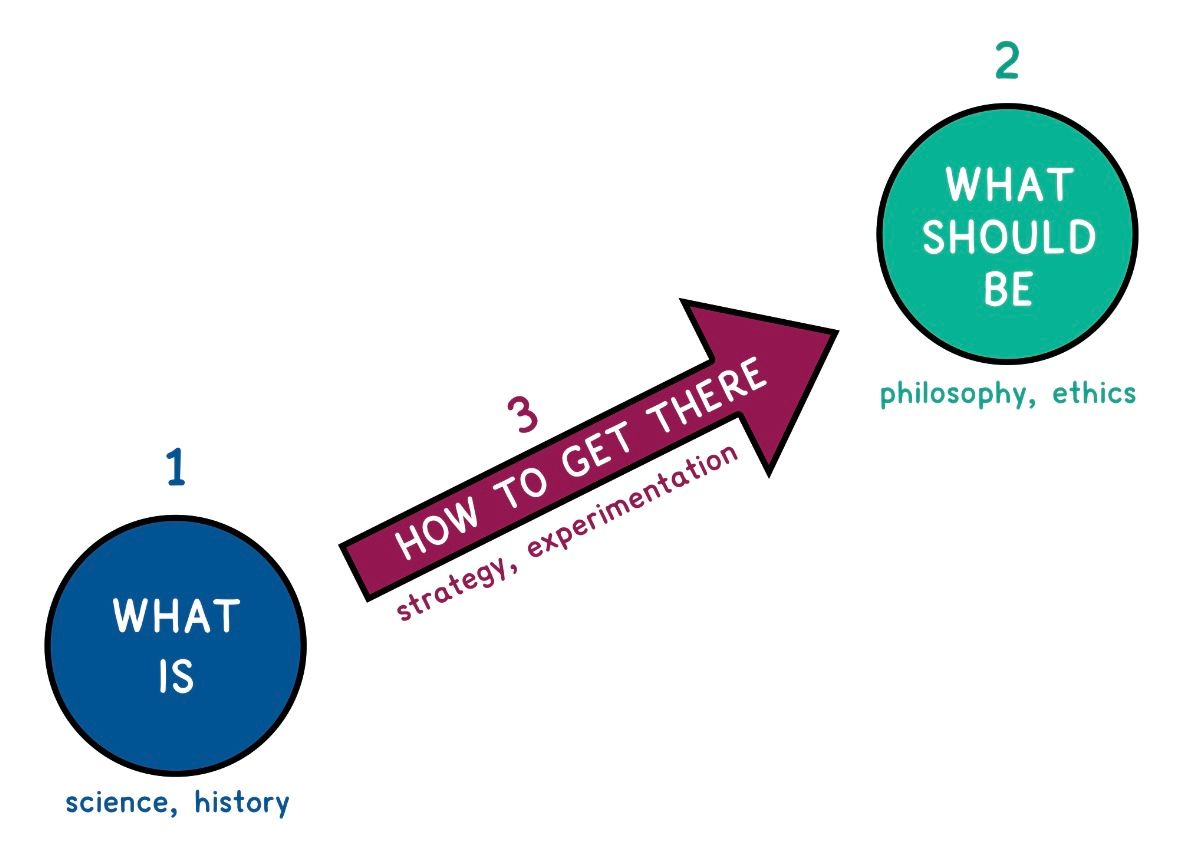On high-rung politics
This post is part of a series on Tim Urban’s book, What’s Our Problem? a self-help book for societies.
--
In previous posts in this series (see here and here), we distinguished between high-rung intellectual cultures, or Idea Labs, and low-rung intellectual cultures, or Echo Chambers. Now let’s apply these to the realm of politics.
High-rung politics treats political viewpoints as hypotheses to be evaluated through a culture of open debate and criticism. Intellectual humility is the norm rather than the exception, and zealous conviction is viewed with skepticism. Disagreements usually fall into one of three categories: what is, what should be, and how we get from one to the other.

The “what is” category is often the foundation of most political debates, whether we know it or not. It includes questions about a country’s history, the biggest threats facing it, the effectiveness of policies and resource allocation, and so on.
The “what should be” category of political debates is arguably the most interesting, because the answers are fuzzy and unclear. Questions regarding the size of the government, citizen rights and freedoms, and the role of business, all fall into this category.
The “how do we get there” category is all about tactics and policies. People may agree on what is and what should be, but have very different, even opposing views on how to get there. For example, people may agree that racial injustice is an issue, yet have completely different ideas on how to solve it.
What sets high-rung politics apart is recognizing the complexity of various problems and breaking arguments down into one or more of these categories to enable nuanced debate.
High-rung political thinkers don't always fit neatly into the left vs right, blue vs red dichotomies that dominate today's political news. They often support progressive stances on some issues and conservative stances on others. They understand the benefits of progressivism—making progress through positive changes, as well as conservatism—conserving the good in society by considering the unintended side effects of well-intentioned changes. They view ideas as a range of options on a spectrum rather than all-or-nothing extremes.

In the next post in this series, we'll explore low-rung politics and the challenges of today's political climate.